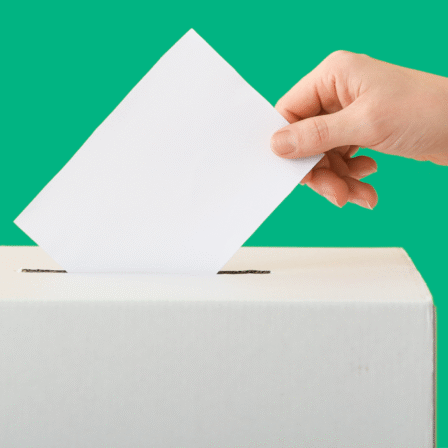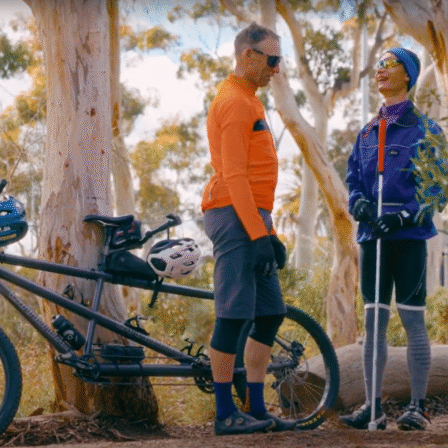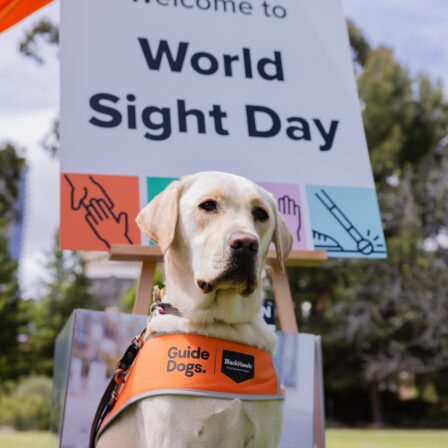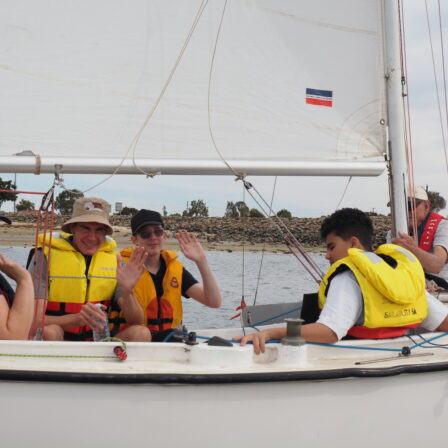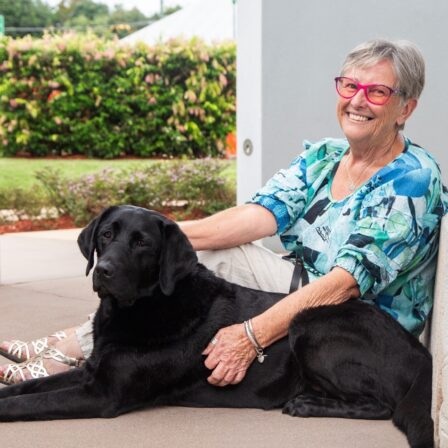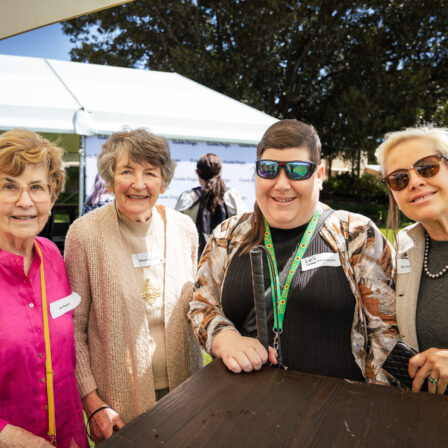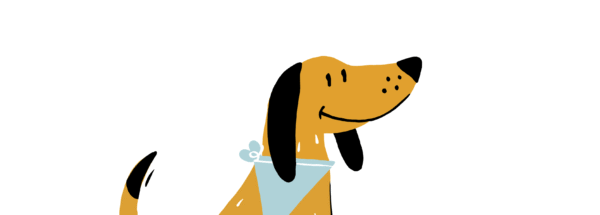News
Mastering a positive attitude is Marie’s key to success
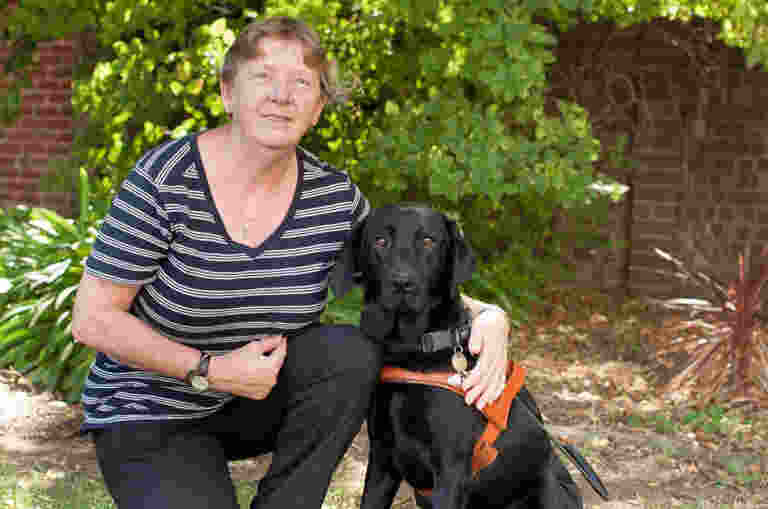
This week, we celebrated International Day of People with Disability but, at Guide Dogs SA/NT, our clients offer a daily reminder that disability is not a barrier to achieving goals.
As Guide Dog user and tenpin bowling champion, Marie puts it, ‘Every day, people with vision impairment are told, “You can’t do this. You can’t do that.” My answer is “Watch me.” I’ll show you what I will do.’
Marie recently competed at the 2018 Pan Pacific Masters Games in Queensland, earning second place in the Ladies Trio competition and silver in the Masters of Masters. In just three years of competitive bowling, she has earned a total of ten gold medals and four silver.
Twenty years ago, Marie lost all but five per cent of her vision in a car accident, yet she has never allowed vision impairment to stop her from participating: ‘I don’t believe in “can’t”… I want to prove I’m an equal in a fully sighted world.’
Alongside her bowling partner, Des, who also has vision impairment, Marie regularly competes against fully sighted players. Together, Marie and Des have earned a reputation as a formidable team, with competitors often remaining unaware of their vision impairment until the medal presentation.
‘Some people ask why I don’t stop and watch the pins after I bowl,’ Marie says. ‘They don’t know it’s because I can’t see them. Instead, I’m listening to hear how many pins drop… A strike sounds very different to a spare.’
In addition to competitive bowling, Marie keeps busy by walking an average of 8km a day with her Guide Dog, Ebony. She also swims twice weekly and plays three games of tenpin bowling with her team, Blind and Vision Impaired Tenpin Bowling South Australia (BVITSA).
Between national sporting championships and nana duties, Marie also makes time to volunteer with Guide Dogs SA/NT. She regularly represents the organisation as a public speaker, advocating for people with vision impairment at schools, workplaces and community groups. This is because Marie feels strongly that education and public awareness are essential to enhancing social inclusion for people with disability.
‘I’m lucky,’ she says. ‘My vision loss has taught me how to speak up for myself. Maybe it’s happened so I can speak up for the people who can’t speak for themselves. I’m really very blessed.’
Top image credit: Risa Utama
